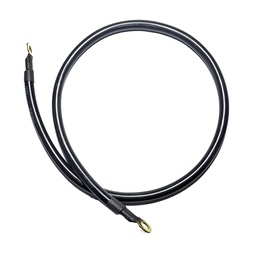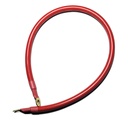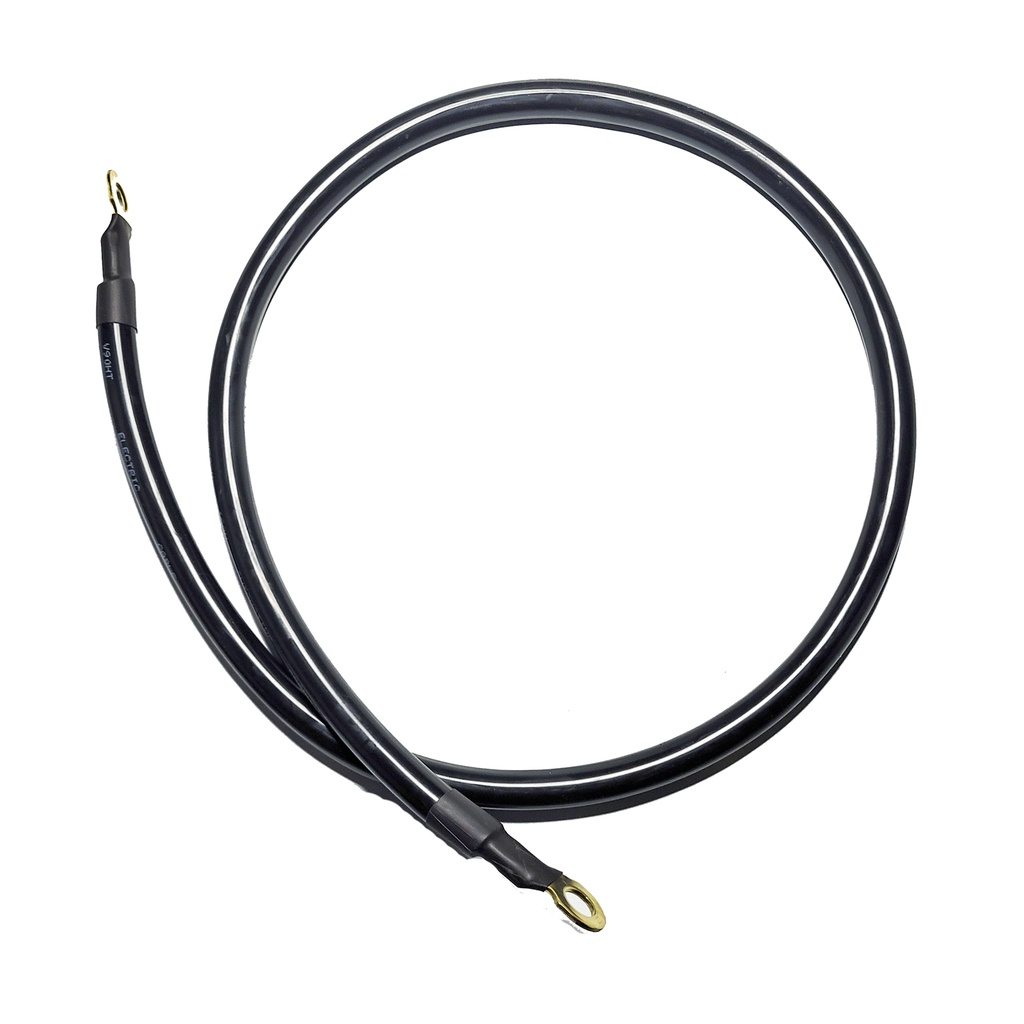Conductor Size: The cable has a conductor with a cross-sectional area of 35mm². The larger the cross-sectional area, the lower the resistance of the cable, allowing it to handle higher currents without excessive voltage drop.
Material: The conductor is typically made of copper, which is an excellent conductor of electricity and offers low resistance to current flow. Copper is commonly used due to its high conductivity and relatively low cost.
Insulation: The conductor is insulated with a suitable material to protect against electrical shorts and to provide mechanical protection.
Stranding: The conductor is usually composed of multiple strands of copper wire. Stranding enhances the flexibility of the cable, making it easier to handle and route in tight spaces.
Voltage and Current Rating: A 35mm battery cable is designed to handle higher voltages and currents commonly found in automotive, solar banks, and industrial battery systems.
Terminal Connectors: At each end, the cable has ring terminals for easy and secure connection to battery terminals and other electrical components.





![[BAT-CABLE35-1050MM-RED] Heavy Duty Battery Cable - 1050mm](/web/image/product.template/356/image_512/%5BBAT-CABLE35-1050MM-RED%5D%20Heavy%20Duty%20Battery%20Cable%20-%201050mm?unique=df542a9)
![[BAT-CABLE35-750MM] Heavy Duty Battery Cable - 750mm](/web/image/product.template/353/image_512/%5BBAT-CABLE35-750MM%5D%20Heavy%20Duty%20Battery%20Cable%20-%20750mm?unique=df542a9)
![[BAT-CABLE35-750MM-RED] Heavy Duty Battery Cable - 750mm](/web/image/product.template/354/image_512/%5BBAT-CABLE35-750MM-RED%5D%20Heavy%20Duty%20Battery%20Cable%20-%20750mm?unique=df542a9)